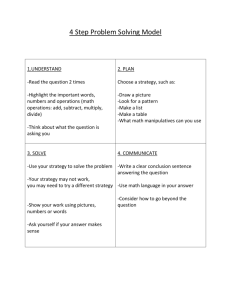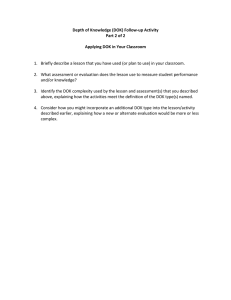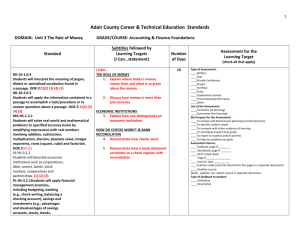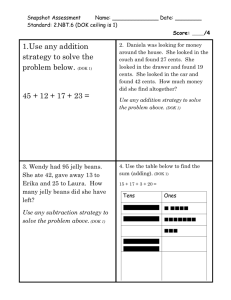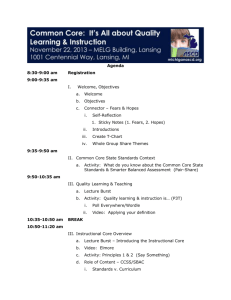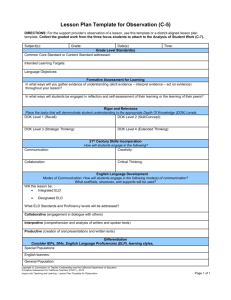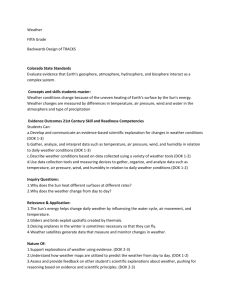Depth of Thinking (Webb) DOK Level 1 DOK Level 2 DOK Level 3
advertisement
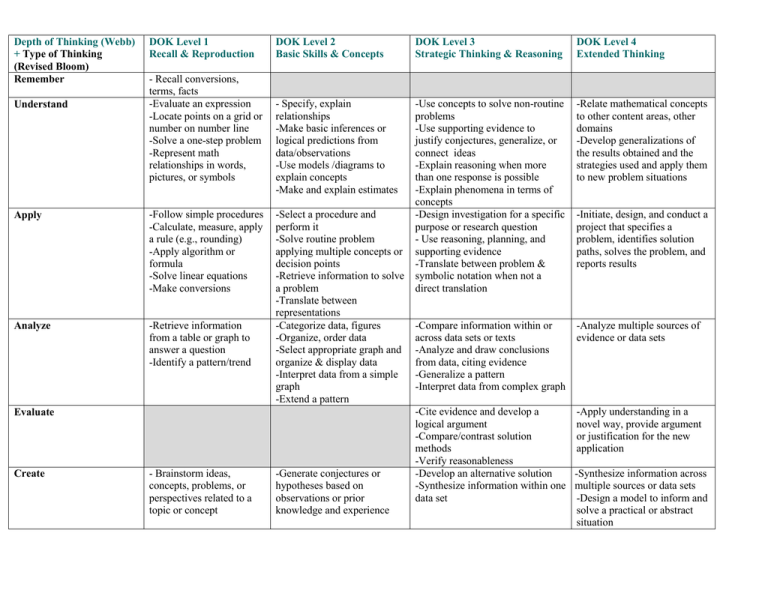
Depth of Thinking (Webb) + Type of Thinking (Revised Bloom) Remember Understand DOK Level 1 Recall & Reproduction - Recall conversions, terms, facts -Evaluate an expression -Locate points on a grid or number on number line -Solve a one-step problem -Represent math relationships in words, pictures, or symbols Apply -Follow simple procedures -Calculate, measure, apply a rule (e.g., rounding) -Apply algorithm or formula -Solve linear equations -Make conversions Analyze -Retrieve information from a table or graph to answer a question -Identify a pattern/trend DOK Level 2 Basic Skills & Concepts DOK Level 3 Strategic Thinking & Reasoning DOK Level 4 Extended Thinking - Specify, explain relationships -Make basic inferences or logical predictions from data/observations -Use models /diagrams to explain concepts -Make and explain estimates -Use concepts to solve non-routine problems -Use supporting evidence to justify conjectures, generalize, or connect ideas -Explain reasoning when more than one response is possible -Explain phenomena in terms of concepts -Design investigation for a specific purpose or research question - Use reasoning, planning, and supporting evidence -Translate between problem & symbolic notation when not a direct translation -Relate mathematical concepts to other content areas, other domains -Develop generalizations of the results obtained and the strategies used and apply them to new problem situations -Compare information within or across data sets or texts -Analyze and draw conclusions from data, citing evidence -Generalize a pattern -Interpret data from complex graph -Analyze multiple sources of evidence or data sets -Select a procedure and perform it -Solve routine problem applying multiple concepts or decision points -Retrieve information to solve a problem -Translate between representations -Categorize data, figures -Organize, order data -Select appropriate graph and organize & display data -Interpret data from a simple graph -Extend a pattern Evaluate Create - Brainstorm ideas, concepts, problems, or perspectives related to a topic or concept -Generate conjectures or hypotheses based on observations or prior knowledge and experience -Initiate, design, and conduct a project that specifies a problem, identifies solution paths, solves the problem, and reports results -Cite evidence and develop a -Apply understanding in a logical argument novel way, provide argument -Compare/contrast solution or justification for the new methods application -Verify reasonableness -Develop an alternative solution -Synthesize information across -Synthesize information within one multiple sources or data sets data set -Design a model to inform and solve a practical or abstract situation
